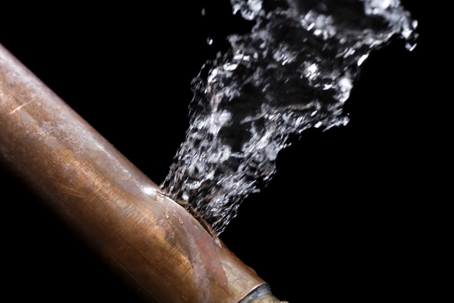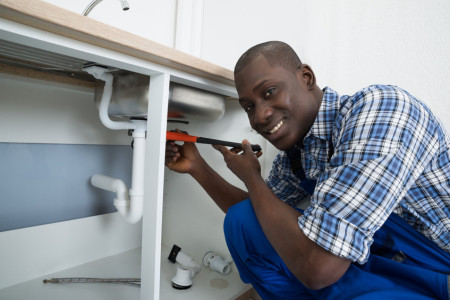Emergency Solutions to Use Until Professional Help Arrives
Emergency Solutions to Use Until Professional Help Arrives
Blog Article
They are making a number of great observations on Expert Tips for Emergency Plumbing Repairs in general in this article which follows.

Plumbing emergencies can strike at any time, triggering anxiety and prospective damage to your home. Whether it's a burst pipe, a clogged drain, or a dripping tap, recognizing just how to handle the circumstance up until a professional plumber arrives can conserve you from more issues. This post gives crucial emergency situation pipes suggestions to help you mitigate damages and gain back control throughout a plumbing crisis.
Switch off the Supply Of Water
The first step in any kind of pipes emergency is to shut off the water supply. For local problems, such as a leaking faucet or commode, shut off the valve near the component. In the case of a major leakage or ruptured pipe, situate your home's primary water shut-off valve and transform it off promptly. Understanding the location of these shutoffs in advance can save beneficial time throughout an emergency.
Shut down Your Hot Water Heater
In certain emergency situations, such as a burst pipe, it's smart to shut off your water heater. This protects against getting too hot or damage to the device when water stops moving. Shut off the power supply to the water heater (electrical or gas) and let it cool to prevent potential dangers.
Temporarily Quit a Burst Pipeline
A burst pipeline can result in substantial water damage in mins. To alleviate the issue:
Call an expert plumbing professional instantly to resolve the problem completely.
Have an Emergency Plumbing Package
Prepare a basic pipes emergency situation set to manage minor problems properly. Your kit must consist of:
Having these devices accessible can make a significant distinction in your capacity to manage emergencies.
Unclog Drains Pipes Safely.
A blocked drainpipe can be an irritating and messy issue. Right here's just how to tackle it:.
If these techniques do not function, stay clear of making use of too much force, as it may worsen the blockage.
Handle Overflowing Toilets.
An overflowing bathroom can trigger immediate mayhem. Right here's what you need to do:.
Address Little Leaks with Short-term Fixes.
Small leakages can promptly come to be substantial issues if left unattended. Make use of these temporary fixes till specialist assistance shows up:.
While these repairs aren't permanent, they can assist minimize water loss and damages.
Take Care Of Frozen Water Lines Thoroughly.
In colder environments, icy pipes are an usual emergency situation. If you think an icy pipeline:.
Know When to Call a Specialist.
While quick fixes can help briefly, certain pipes issues need immediate specialist attention. Call a plumbing professional if:.
Without delay getting in touch with a specialist ensures the problem is resolved properly and protects against further issues.
Prevent Further Damages.
Taking fast action to lessen damages can conserve you time and money over time. Below's how:.
Verdict.
Pipes emergencies can be frustrating, but with the best expertise and devices, you can manage the situation successfully till aid arrives. By turning off the water system, resolving tiny leakages, and utilizing short-lived solutions, you can minimize damage and keep your home safe. Keep in mind, these ideas are momentary remedies; constantly consult a licensed plumber to deal with the source of the problem. Preparation and quick thinking are your ideal allies in any kind of plumbing emergency.
8 Helpful Tips for Managing Plumbing Emergencies at Home
If your plumbing system hasn’t failed once, wait for it because almost everyone has a story to tell. Sometimes, it could be simple emergencies such as a leaking pipe, a blocked cistern, or even a big burst pipe. In situations like this, you need to have some handy tips to save you some money and from possible damages.
Take care of minor issues early.
Sometimes, you could have avoided an emergency by taking proactive measures while it was still early. Some major plumbing emergencies can be a result of an ignored minor issue. We recommend that you have items like plumbing tapes and other related items. A plumbing tape can allow you to manage minor leaks before the plumber arrives.
Cut off the water supply.
This tip is essential in almost any type of leakage problem. For problems like minor leakages in the toilet or kitchen, turn off the supply that takes water to the affected pipes. If the leakage is a major pipe, you must shut off the supply valve to the entire building. This will help you avoid flooding your home and neighbors if you share a flat.
Know your plumbing system
Folks typically move into a new apartment without understanding the water supply around the building. This can prove disastrous if a water emergency arises and the plumber is far away. The previous tip will prove useless if you don’t practice this one. More importantly, know where your water shut-off valve is located – you’ll need that knowledge to prevent potential home floods.
Have some common handy tools
There are lots of plumbing emergencies that you can handle without hiring a plumber. That’s why you must keep some tools available always. Some tools that you can use to fix simple plumbing emergencies easily include plumbing tapes, screwdrivers, thread seal tapes, plungers, pliers, tape measures, and rubber gloves.
Insulate your pipes from cold
You’ll save yourself from many plumbing expenses if you protect your water pipes from the cold. This is because of the harmful effects that cold weather can have on your pipes. During winter, your pipes can burst from being overly expected to freezing temperatures. So, make sure insulators are there to keep the pipes working correctly.
Avoid practices that will clog your toilet.
Many people indulge in practices that can damage the plumbing system of the entire building. One of these is when they use their toilet to dispose-off garbage. They flush all kinds of things, such as paper towels, bandages, hairs, female sanitary products, etc., down the toilet. This will block your toilet in the long run, incurring unnecessary expenditures. Dump such waste in the trash instead.
Check your dials regularly.
Sometimes, there could be leakages in your home without noticing them in time. So, constantly monitor your water meter dial. If the dial is reading when there is nobody using water, this is an indicator that there is leaking. Check for leaks immediately. Call a plumber as soon as possible if you can’t find any.
https://www.constructionplacements.com/8-helpful-tips-for-managing-plumbing-emergencies-at-home/

I found that article on Plumbing Emergencies: Tips on What To Do Before while doing a search on the internet. So long as you enjoyed reading our blog entry plz be sure to share it. We take joy in your readership.
Click Here Report this page